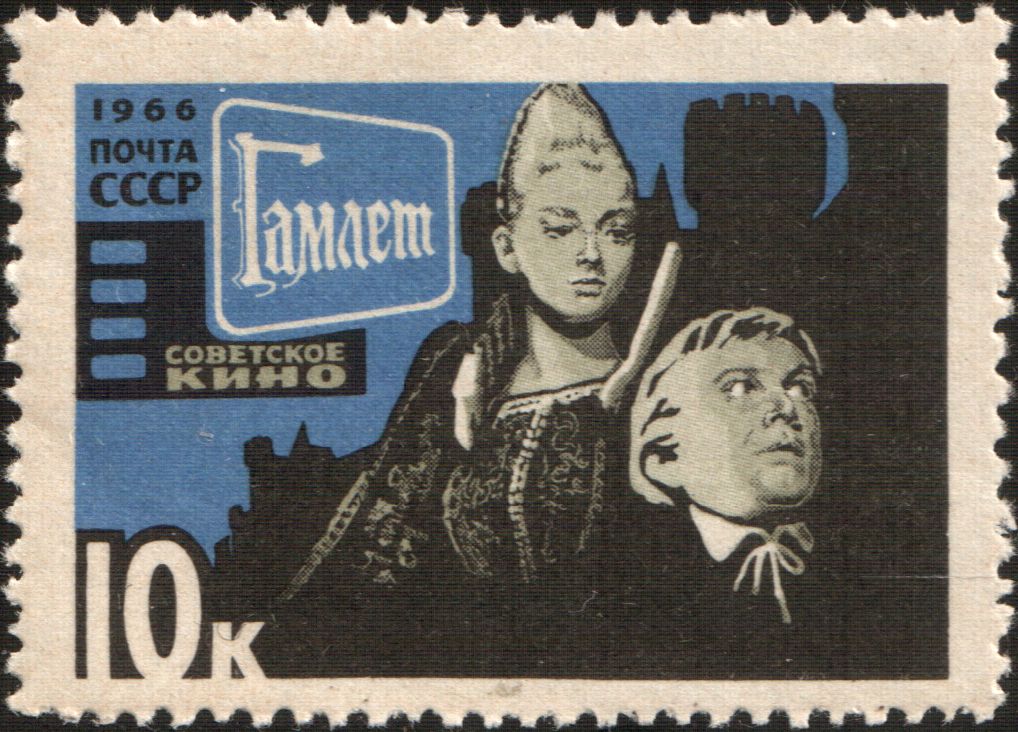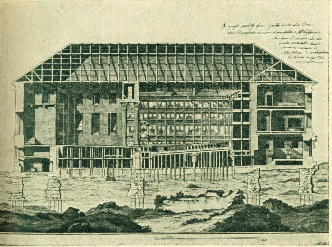|
Smoktunovsky
Innokenty Mikhailovich Smoktunovsky (russian: Иннокентий Михайлович Смоктуновский; born ''Smoktunovich'', 28 March 19253 August 1994) was a Soviet and Russian stage and film actor. He was named a People's Artist of the USSR in 1974 and a Hero of Socialist Labour in 1990. Early life Smoktunovsky was born in a Siberian village in a peasant family of Belarusian ethnicity.Dubrovsky, V. Ya. (2002) ''Иннокентий Смоктуновский. Жизнь и роли''. B. M. Poyurovsky (ed.), Moscow: Iskusstvo. . It was once rumored that he came from a Polish family, even nobility, but the actor himself denied these theories by stating his family was Belarusian and not of nobility. He served in the Red Army during World War II and fought in Kursk, Dnipro and Kyiv battles. In 1946, he joined a theatre in Krasnoyarsk, later moving to Moscow. In 1957, he was invited by Georgy Tovstonogov to join the Bolshoi Drama Theatre of Leningrad, where he ... [...More Info...] [...Related Items...] OR: [Wikipedia] [Google] [Baidu] |
Hamlet (1964 Film)
''Hamlet'' ( rus, Гамлет, r=Gamlet) is a 1964 film adaptation in Russian of William Shakespeare's play of the same title, based on a translation by Boris Pasternak. It was directed by Grigori Kozintsev and , and stars Innokenty Smoktunovsky as Prince Hamlet. Background Grigori Kozintsev had been a founder member of the Russian avant-garde artist group the Factory of the Eccentric Actor (FEKS), whose ideas were closely related to Dadaism and Futurism. In 1923 he had been planning to perform ''Hamlet'' as a pantomime in the experimental manner of FEKS, but the plan was not put into effect, and Kozintsev's energies shifted into the cinema. However, he returned to the theatre in 1941 with a Leningrad production of ''King Lear''. Then, in 1954 Kozintsev directed a stage production of ''Hamlet'' at the Pushkin Theatre in Leningrad, using Boris Pasternak's translation; this was one of the first Soviet productions of the play in the post-Joseph Stalin era. Kozintsev also wrot ... [...More Info...] [...Related Items...] OR: [Wikipedia] [Google] [Baidu] |
Nine Days In One Year
''Nine Days in One Year'' (russian: Девять дней одного года) is a 1962 Soviet black-and-white drama film directed by Mikhail Romm about nuclear particle physics, physicists and their relationships. The film is based on true events. It is one of the most important Soviet films of the 1960s. It won the Crystal Globe Award in 1962. Plot summary Two young physicists and old friends — the possessed experimental physicist Dmitri Gusev and the skeptical theoretical physicist Ilya Kulikov — conduct nuclear studies at a research institute in Siberia. Dmitri leads the research started by his teacher Sintsov, who has received a deadly dose of radiation as a result of an experiment. Dmitri has also been irradiated. Doctors warn him that further irradiation might kill him as well. Meanwhile, his friend Ilya and Lyolya, a love interest of Dmitri, have developed a romantic relationship. The enamoured couple is getting prepared for the wedding and looking for an opportun ... [...More Info...] [...Related Items...] OR: [Wikipedia] [Google] [Baidu] |
Hamlet
''The Tragedy of Hamlet, Prince of Denmark'', often shortened to ''Hamlet'' (), is a tragedy written by William Shakespeare sometime between 1599 and 1601. It is Shakespeare's longest play, with 29,551 words. Set in Denmark, the play depicts Prince Hamlet and his attempts to exact revenge against his uncle, Claudius, who has murdered Hamlet's father in order to seize his throne and marry Hamlet's mother. ''Hamlet'' is considered among the "most powerful and influential tragedies in the English language", with a story capable of "seemingly endless retelling and adaptation by others". There are many works that have been pointed to as possible sources for Shakespeare's play—from ancient Greek tragedies to Elizabethan plays. The editors of the Arden Shakespeare question the idea of "source hunting", pointing out that it presupposes that authors always require ideas from other works for their own, and suggests that no author can have an original idea or be an originator. When ... [...More Info...] [...Related Items...] OR: [Wikipedia] [Google] [Baidu] |
Georgy Tovstonogov
Georgy Aleksandrovich Tovstonogov (russian: Георгий Александрович Товстоногов, – 23 May 1989) was a Russian-Georgian theatre director. He was the leader of the Gorky Bolshoi Drama Theater which was renamed after him in 1992. Biography Georgy Tovstonogov was born in Tbilisi (now Georgia), or in St. Petersburg on 28 September 1915, to a Russian noble and a Georgian classical singer Tamara Papitashvili. In 1938 he graduated from the State Institute of Theatrical Art in Moscow. From 1938 to 1946, he worked as a director in the Tbilisi Griboedov Theater, from 1946 to 1949 in the Central Children's Theater in Moscow, from 1950 to 1956 in the Leningrad Leninsky Komsomol Theater, and from 1956 until his death in 1989 in the Bolshoi Academic Gorky Theater. He was a professor at the Leningrad State Institute of Theatre, Music and Cinema since 1960. In 1957 he became a People's Artist of the USSR. He won the Stalin Prize thrice (1950, 1952, 1956), and g ... [...More Info...] [...Related Items...] OR: [Wikipedia] [Google] [Baidu] |
Tomsk Governorate
Tomsk Governorate (russian: Томская губерния) was an administrative division (a '' guberniya'') of the Russian Empire, Russian Republic, Russian Soviet Federative Socialist Republic located in Siberia from 1804 to 1925 as part of the Siberian Governorate-General (1804–1822) and the West Siberian Governorate-General (1822–1882). Its seat was in the city of Tomsk. General information The Tomsk Governorate was located in the southeastern part of Western Siberia. To the north, north-west and west it bordered the Tobolsk Governorate, to the south-west the Semipalatinsk region, to the south and south-east Mongolia, and to the east and north-east the Yeniseisk Governorate. In terms of territory, it corresponded to the territories of the modern Altai Krai, the Republic of Altai, Kemerovo Oblast, Novosibirsk Oblast and Tomsk Oblast of the Russian Federation, Ust-Kamenogorsk and Semipalatinsk Oblast of Kazakhstan, the western lands of Krasnoyarsk Krai and the east ... [...More Info...] [...Related Items...] OR: [Wikipedia] [Google] [Baidu] |
Maly Theatre (Moscow)
Maly Theatre (, literally ''Small Theatre'' as opposed to nearby Bolshoi, or ''Grand'', opera theatre) is a theatre in Moscow, Russia, principally associated with the production of plays. Established in 1806Londre, Margot p. 307 and operating on its present site on the Theatre Square since 1824, the theatre traces its history to the Moscow University drama company, established in 1756. In the 19th century, Maly was "universally recognized in Russia as the leading dramatic theatre of the century", and was the home stage for Mikhail Shchepkin and Maria Yermolova. 40 of Alexander Ostrovsky's 54 plays premiered at Maly, and the theatre was known as The House of Ostrovsky.Londre, Margot p. 306 The Maly Theatre in Moscow and Alexandrinsky Theatre in Saint Petersburg "to a great extent determined the development of Russian theatre during the 19th and 20th century". Maly Theatre positions itself as a traditional drama theatre that produces classical heritage plays. For example, the 200 ... [...More Info...] [...Related Items...] OR: [Wikipedia] [Google] [Baidu] |
Tovstonogov Bolshoi Drama Theater
Tovstonogov Bolshoi Drama Theater (russian: Большой драматический театр имени Г. А. Товстоногова; literally ''Tovstonogov Great Drama Theater''), formerly known as Gorky Bolshoi Drama Theater (russian: Большой Драматический Театр имени Горького) (1931–1992), often referred to as the Bolshoi Drama Theater and by the acronym BDT (russian: БДТ), is a theater in Saint Petersburg, that is considered one of the best Russian theaters.''Emperor Theater on Fontanka The theater is named after its long-time director . Since 2013, [...More Info...] [...Related Items...] OR: [Wikipedia] [Google] [Baidu] |
William Shakespeare
William Shakespeare ( 26 April 1564 – 23 April 1616) was an English playwright, poet and actor. He is widely regarded as the greatest writer in the English language and the world's pre-eminent dramatist. He is often called England's national poet and the " Bard of Avon" (or simply "the Bard"). His extant works, including collaborations, consist of some 39 plays, 154 sonnets, three long narrative poems, and a few other verses, some of uncertain authorship. His plays have been translated into every major living language and are performed more often than those of any other playwright. He remains arguably the most influential writer in the English language, and his works continue to be studied and reinterpreted. Shakespeare was born and raised in Stratford-upon-Avon, Warwickshire. At the age of 18, he married Anne Hathaway, with whom he had three children: Susanna, and twins Hamnet and Judith. Sometime between 1585 and 1592, he began a successful career in London as an ... [...More Info...] [...Related Items...] OR: [Wikipedia] [Google] [Baidu] |
Grigori Kozintsev
Grigori Mikhailovich Kozintsev (russian: link=no, Григорий Михайлович Козинцев; 11 May 1973) was a Soviet theatre and film director, screenwriter and pedagogue. He was named People's Artist of the USSR in 1964. In 1965 he was a member of the jury at the 4th Moscow International Film Festival. Two years later he was a member of the jury of the 5th Moscow International Film Festival. In 1971 he was the President of the Jury at the 7th Moscow International Film Festival. Biography Grigori Kozintsev was born in the family of a doctor, therapist and pediatrician Moisei Isaakovich Kozintsov (1859–1930) and his wife Anna Grigorievna Lurie was from a rabbinical family from Kyiv. His mother's sister was the gynecologist and scientist-physician Rose G. Lurie. The mother's brother was the dermatologist Alexander G. Lurie (1868–1954), a professor and chair of venereal skin diseases at the Kyiv Postgraduate Medical Institute (1919–1954). The parents were mar ... [...More Info...] [...Related Items...] OR: [Wikipedia] [Google] [Baidu] |
1966 CPA 3328
Events January * January 1 – In a coup, Colonel Jean-Bédel Bokassa takes over as military ruler of the Central African Republic, ousting President David Dacko. * January 3 – 1966 Upper Voltan coup d'état: President Maurice Yaméogo is deposed by a military coup in the Republic of Upper Volta (modern-day Burkina Faso). * January 10 ** Pakistani–Indian peace negotiations end successfully with the signing of the Tashkent Declaration, a day before the sudden death of Indian prime minister Lal Bahadur Shastri. ** Georgia House of Representatives, The House of Representatives of the US state of Georgia refuses to allow African-American representative Julian Bond to take his seat, because of his anti-war stance. ** A Commonwealth Prime Ministers' Conference convenes in Lagos, Nigeria, primarily to discuss Rhodesia. * January 12 – United States President Lyndon Johnson states that the United States should stay in South Vietnam until Communism, Communist aggression there is e ... [...More Info...] [...Related Items...] OR: [Wikipedia] [Google] [Baidu] |
Tsar Fyodor Ioannovich
''Tsar Fyodor Ioannovich'' (russian: Царь Фёдор Иоаннович, old orthography: Царь Ѳедоръ Іоанновичъ) is a 1868 historical drama by Aleksey Konstantinovich Tolstoy.Banham (1998, 1115) and Moser (1992, 270). It is the second part of a trilogy that begins with ''The Death of Ivan the Terrible'' and concludes with ''Tsar Boris''.Moser (1992, 270). All three plays were banned by the censor.Hartnoll (1983, 831). ''Tsar Fyodor'' is written in blank verse and was influenced by the work of William Shakespeare, Casimir Delavigne, and Edward Bulwer-Lytton Edward George Earle Lytton Bulwer-Lytton, 1st Baron Lytton, PC (25 May 180318 January 1873) was an English writer and politician. He served as a Whig member of Parliament from 1831 to 1841 and a Conservative from 1851 to 1866. He was Secret .... It dramatises the story of Feodor I of Russia, whom the play portrays as a good man who is a weak, ineffectual ruler.Eriksen, MacLeod, and Wisneski (1960, ... [...More Info...] [...Related Items...] OR: [Wikipedia] [Google] [Baidu] |




